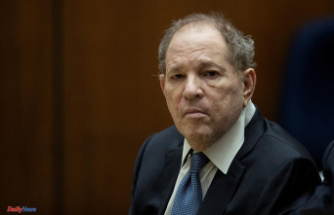Promotion in the British Empire army could be a double-edged sword. For example, anyone who was appointed colonel of a regiment in Hong Kong or Singapore could look forward to pleasant evenings in the officers' casino. On the other hand, those who had to take over their unit at the Chaiber Pass could assume that they had made enemies in the military hierarchy. Because a post at the gateway from India to Afghanistan was considered a suicide mission.
This was proved by the British Expeditionary Force, which in 1839 had attempted to establish a puppet regime in Kabul. Two years later there was an uprising. 16,500 soldiers and civilians were decimated by Afghan tribal warriors while fleeing to India. Only one European, the regimental doctor Dr. Brydon, escaped the massacre. But worse was to come.
In early July 1880, Brigadier General George Burrows received orders to put down one of Afghanistan's usual rebellions. Two years earlier, the British government had opened a new round in the "Great Game" against the Russians in Central Asia, moving an army across the Chaiber Pass and once again installing a supposedly reliable ruler in Kabul. While his unloved predecessor, Shir Ali, fled to Russia, his son Mohammed Ayub Khan (1857-1914) organized the resistance.
Then Burrows pulled together 2599 men. They were to be joined by a corps from the official government in Kabul. But the 6,000 soldiers made off in time and joined Ayub Khan, who was now leading more than 8,500 fighters from Herat towards Kandahar. He was joined by numerous tribal warriors along the way.
Confident in victory, Burrows advanced from Kandahar to meet him. He relied on the fighting power of his Sikhs and Gurkhas (who, however, only wielded outdated muzzle-loading rifles), while many of his British soldiers were still inexperienced. The lack, her general was convinced, would be made up for by the superiority of British civilization.
In this sense, he did not take seriously the reports that Ayub Khan's troops were approaching. When he was finally proved wrong by his reconnaissance, he had his people deployed at the village of Maiwand, 80 kilometers west of Kandahar. A retreat was now out of the question, since there was a danger that the Afghan horsemen would bypass the British and reach the city before them.
Ayub Khan was taken by surprise and took a while to organize his troops. Their first attacks were repelled by British infantry fire. But that gave Ayub Khan time to position his guns. Not only did he have several dozen, but Burrows only had twelve. Some Afghan guns were also rifled-barreled, cast-iron breech-loaders that had a longer range and more penetrating power than British muzzle-loaders.
The artillery decimated the British centre, which in the heat threatened to run out of ammunition and morale. At the same time, Ayub Khan's horsemen attacked on the wings. When the attack by Burrow's cavalry reserve failed, the entire front collapsed and disintegrated.
The remains of the (British) 66th (Berkshire) Regiment formed a square in a plantation and were trapped. Their end was described by an artillery officer in Ayub Khan's army: "Surrounded by Afghan superiority, they fought on until only eleven men were left. They rushed out of the garden and died facing the enemy.” Only her regimental mascot, the dog Bobbie, survived and was later awarded a medal by Queen Victoria. Burrows managed to escape to Kandahar with a few hundred survivors. Of his 2,500 men, 1,750 were killed and almost 200 were wounded.
Ayub Khan then advanced on Kandahar. However, troops from Kabul reinforced the British garrison, which attacked on September 1st. The Afghans were routed. Their leader went into exile in Iran, where he died in 1914.
In London, the Liberal William Gladstone's government, persuaded that the cost of occupying Afghanistan was disproportionate to the rewards, withdrew its troops. The Chaiber Pass remained one of the most dangerous posts in the Empire.
You can also find "World History" on Facebook. We are happy about a like.












